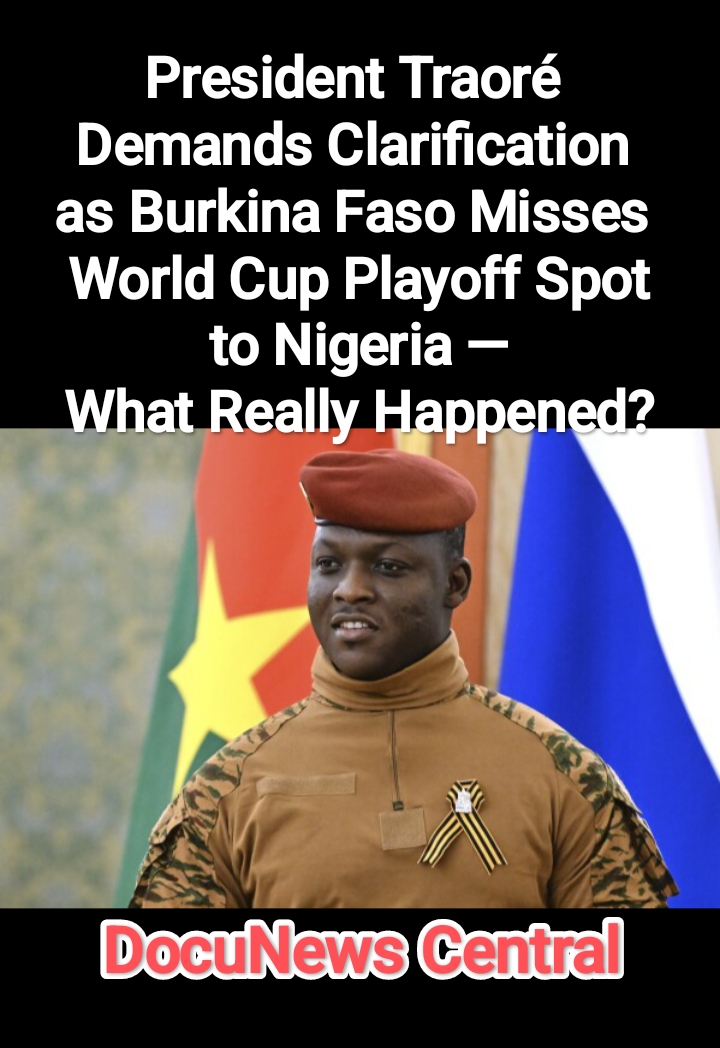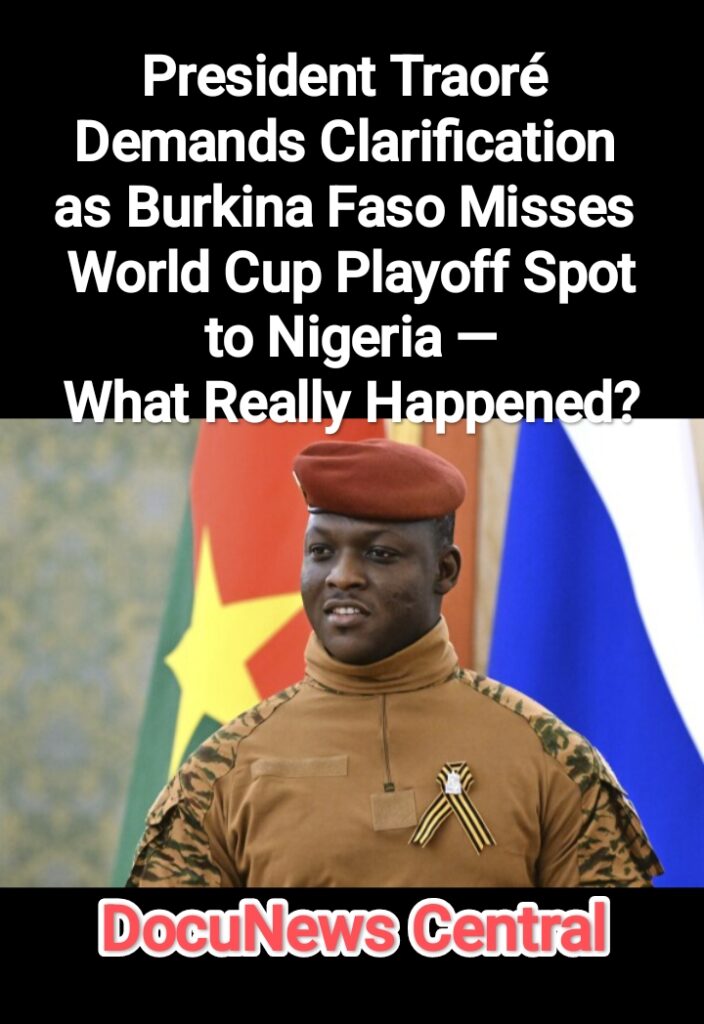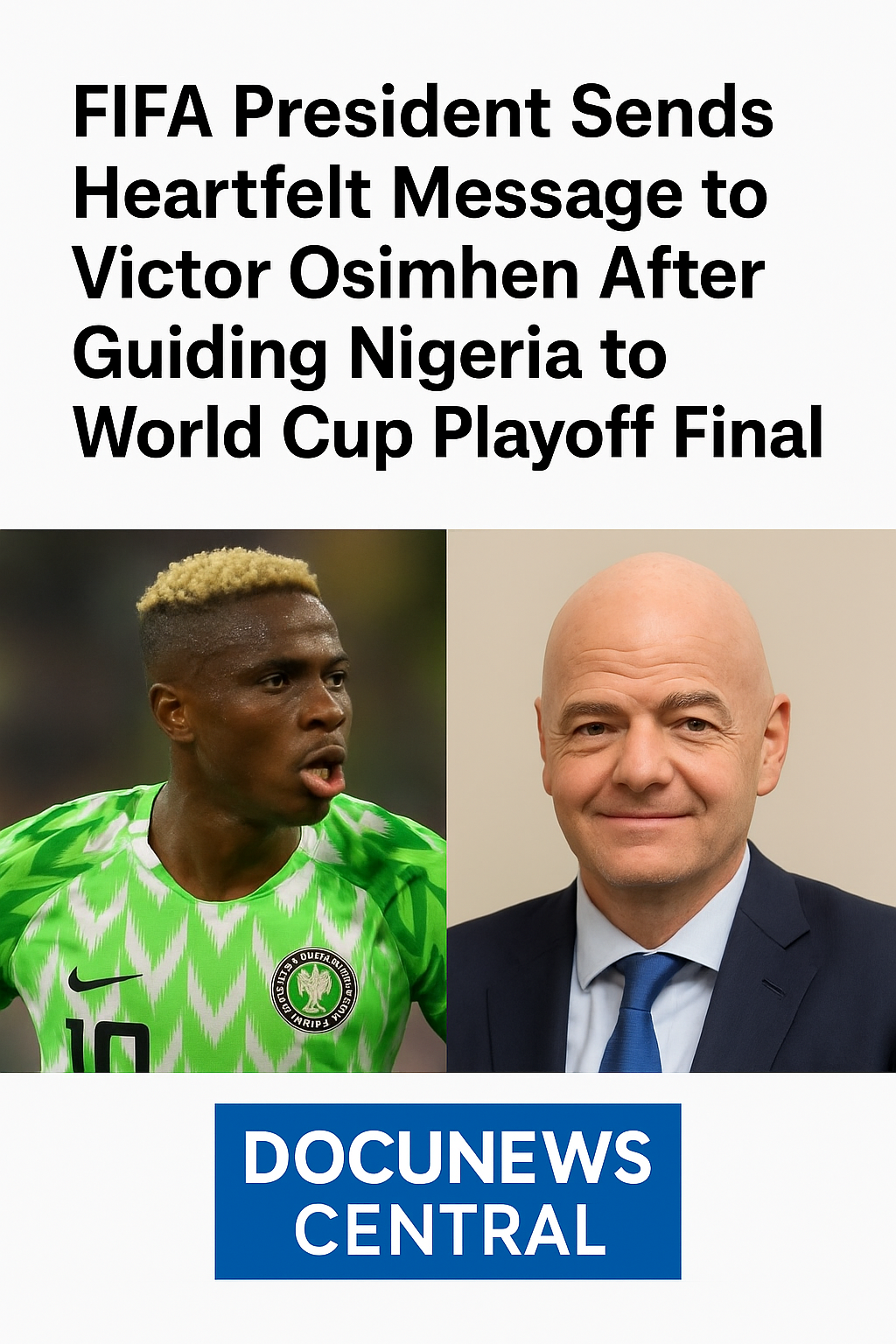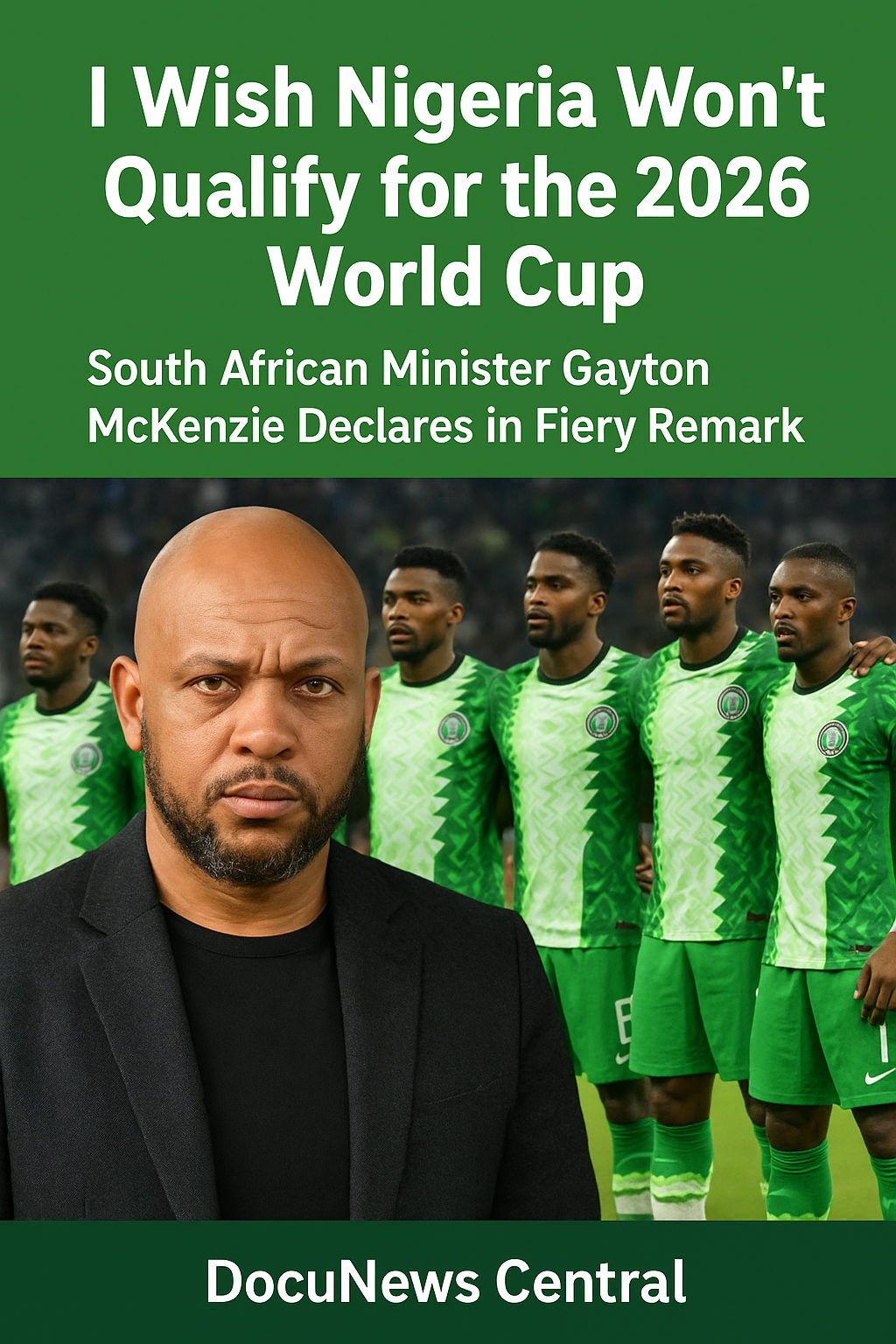

Copyright Reserved, DocuNews Central
In a development that has stirred passionate debate across West Africa and beyond, President Ibrahim Traoré of Burkina Faso has publicly demanded explanations after his national team, the Stallions (Les Étalons), failed to qualify for the CAF World Cup playoffs — a spot that instead went to Nigeria. The controversy pivots on how the Confederation of African Football (CAF) applied the rules for comparing second-place finishers across qualifying groups.
In this article, DocuNews Central breaks down the full story, the facts, and the key reactions surrounding this controversial outcome.
The Claim: What Went Wrong for Burkina Faso?
Presidential Outcry
Following the conclusion of CAF’s qualification process, reports emerged that President Traoré had expressed “profound disappointment” and formally demanded an explanation from both CAF and the Burkina Faso Football Federation. (Legit.ng)
The dispute centers on how Burkina Faso and Nigeria ended with equal points in the adjusted standings. Nigeria’s superior goal difference reportedly edged them ahead — a result many in Burkina Faso view as deeply unfair.
Traoré’s demand calls for clarity on how CAF’s rule of excluding results against bottom-ranked teams was applied. (OwnGoal Nigeria)
Media Reports & Stakeholder Voices
- Legit.ng confirmed that Nigeria advanced despite having “fewer raw points,” because CAF’s rules discard certain matches when comparing runners-up.
- OwnGoal Nigeria reported that Traoré has also contacted FIFA for a formal explanation.
- Foot Africa cited defender Steeve Yago criticizing how Nigeria qualified “without beating the weakest team” in their group. (Foot Africa)
The evidence supports that President Traoré has indeed demanded answers and that public dissatisfaction is widespread in Burkina Faso.
Understanding the CAF Qualification Rules
Key Regulation: Excluding Results vs. Bottom Teams
In CAF’s qualification system, when comparing second-place teams across groups, the results against the lowest-ranked (bottom-placed) team in each group are excluded. This rule aims to balance fairness between groups of different strengths. (Legit.ng)
Application in Burkina Faso’s Case
- Burkina Faso initially earned 21 points in their group. However, after removing results versus the bottom-placed team, their adjusted total dropped to 15 points.
- Nigeria also ended with 15 adjusted points after their bottom-team results were discarded.
- CAF then applied goal difference as a tiebreaker: Nigeria +7 versus Burkina Faso +6.
That narrow one-goal margin sent Nigeria into the playoff — a decision that sparked outrage in Burkina Faso.
Was the Application Fair? Key Questions and Criticisms
Transparency and Communication
Many fans and officials claim they were not aware that CAF would remove results against bottom teams. President Traoré’s demand reflects this gap in communication. (Legit.ng)
Margin of Decision Too Thin?
Analysts argue that when a single goal decides qualification, the fairness of the process must be examined closely. Burkina Faso’s strong performance across all matches appears overshadowed by a technical rule.
Edge Cases and Group Strength
Because groups vary in competitiveness, excluding bottom-team results can unfairly penalize stronger sides. If one group’s weakest team is very poor, removing those results hurts dominant teams more than others. Critics say CAF should have anticipated such distortions.
Calls for Review of CAF Rules
Experts now urge CAF to review its tiebreaking method. Steeve Yago noted that Nigeria progressed “without beating the weakest team,” calling the system “strange.” (Foot Africa)
Reactions and Consequences
Domestic Fallout in Burkina Faso
- Public anger is mounting, with fans labeling the decision “unjust.”
- The Burkina Faso Football Federation has vowed to seek formal clarification from CAF.
- Former players and journalists are backing President Traoré’s stance, demanding full transparency.
Continental Impact
The ruling means Nigeria — not Burkina Faso — joins Cameroon, DR Congo, and Gabon in the CAF playoffs for the 2026 FIFA World Cup. This reshapes Africa’s playoff race and has already raised questions about CAF’s internal consistency.
CAF and FIFA’s Expected Response
Because the issue involves a head of state, CAF and FIFA are expected to publish a detailed explanation of how the results were calculated. However, any reversal remains unlikely at this stage.
Lessons and Takeaways
- Rules Must Be Clear — CAF should ensure all participants and fans understand qualification criteria before matches begin.
- Comparative Systems Can Be Unfair — Adjustments meant to promote equality can introduce new imbalances.
- Transparency Builds Trust — Clear publication of group calculations helps avoid suspicion of bias.
- Appeal Rights Are Vital — National federations must be able to challenge questionable applications.
- Sporting Justice Matters — Fair play requires that every team’s performance be evaluated consistently.
Conclusion
President Traoré’s demand for answers is backed by multiple media outlets including Legit.ng, OwnGoal Nigeria, and Foot Africa. Reports confirm that he has requested CAF and the Burkina Faso Football Federation to explain in detail how Nigeria edged the Stallions out of the playoffs.
While CAF’s rules are technically correct, their impact is harsh. Burkina Faso’s dream ended not on the pitch but through calculations that few fans understood. Whether CAF will revise its system or simply justify it remains to be seen.
For now, the spotlight is on African football governance — and how fairness can be balanced with complex competition formats.
Copyright Reserved, DocuNews Central








